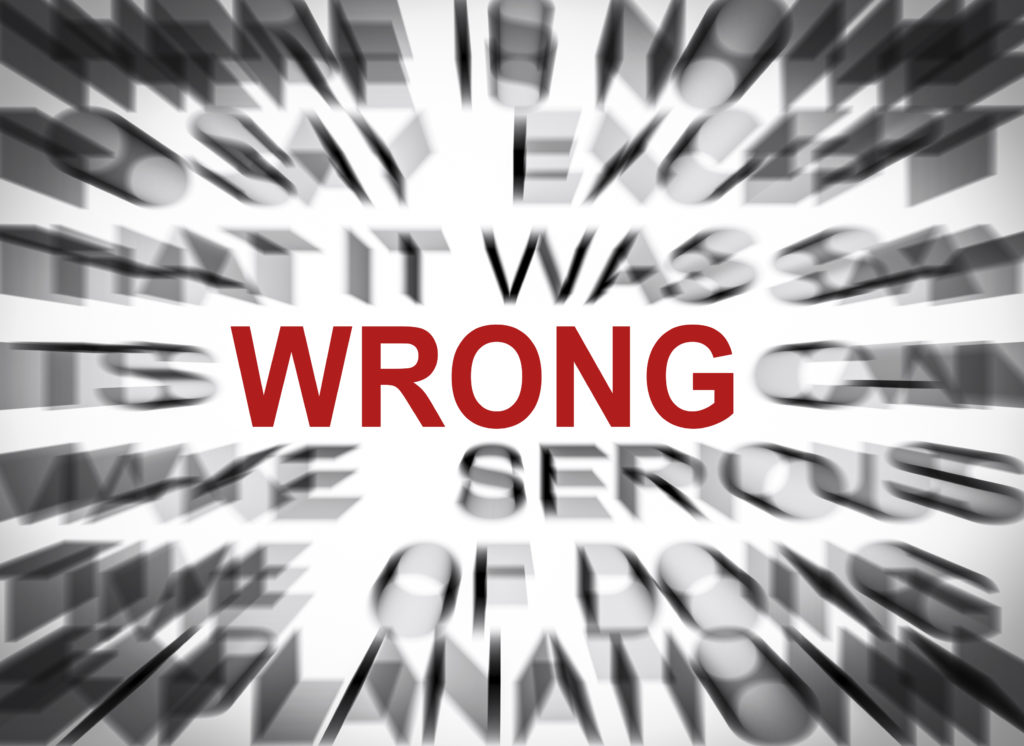Reader Question: Correct The Record Or Let It Go?
A reader recently wrote in asking about a challenge many PR pros have encountered along the way:
“Hey, Brad, question for you.
I work for a statewide non-profit. One of our board members lives on the opposite end of the state from me (the non-profit spokesperson) so he has done in-person interviews for us for media over there. In a recent interview, he made a huge gaffe by stating something as our non-profit’s policy that is the opposite of our policy. We’re getting egg on our face because of it. I reached out to the reporter for a correction but am waiting to hear from the director. I also posted our statement on the site that was making hay out of the story. But the story is still being reposted. Should we email (or post to our social media) a statement out? Or hope it blows over? Thanks for any advice!”
Making a call in this type of situation can be tricky. On one hand, blasting out a statement will undoubtedly reach people who hadn’t seen the original story, thus expanding the reach of the wrong information. On the other hand, a failure to respond can be viewed by the public (and other important constituencies) as a confirmation that the (incorrect) information is true.

Sometimes, waiting a story out and letting it die on its own within a news cycle or two is the smarter call. But in this case, you wrote one thing that makes this an easier call for me: you wrote that, “We’re getting egg on our face.” Since you’re paying a real price for the incorrectly stated policy position, it’s worth correcting the record—quickly and aggressively.
The next steps, then, are deciding what your statement should say and how you should distribute it.
Regarding the statement itself, the most important recommendation is to avoid anything that could even remotely be perceived as spin. Your board member screwed up. Say so. You don’t have to throw him under the bus, but call this what it was—an embarrassing misstatement that has had a negative consequence for your organization.
Here’s an example of the type of straightforward language I—and likely most readers—prefer:
“During a recent interview with [name of news organization], one of our board members [name of board member] misstated our policy position about [policy issue]. As a result, many people have shared that view on social media and expressed dismay with what he articulated as our organization’s stance.
He said that our position is [very brief summary of his statement]. That is incorrect. Our position is, and has always been, [insert policy position]. That is core to our beliefs, because [insert rationale].
[Name of board member] and all of us at [name of organization] feel terribly about the error, and we will work hard to improve our internal communications to make sure similar inaccuracies don’t occur again.
The fault is entirely ours, and we apologize for the error.
Sincerely,
[Name and title of real person]

In terms of distribution, you might post the statement to the original sites that published the article and to social media pages that have discussed it. Doing so may come too late for the people who have already commented—but it may diminish further comment and stand as a historical record for people who encounter those pages in the future.
And yes, you might also send it to your mailing list, possibly alongside a regular email update if this issue isn’t quite serious enough to warrant its own email or newsletter.
I suspect many readers have faced similar challenges. What have you done in similar situations? Please leave your experiences in the comments section below.
Like the blog? Read the book! The Media Training Bible: 101 Things You Absolutely, Positively Need to Know Before Your Next Interview is available in paperback, for Kindle, and iPad.



Wouldn’t it be better and more effective to have the board member reach out and correct his/her misstatement? Also, instead of trying to clean up the mess, this person should try to make sure that all board members speaking to the media have some sort of training, even if it is a copy of the organization’s key messages/talking points.
Deborah —
Great point!
If the board member is generally a good media spokesperson who made an unfortunate and rare error, then yes — correcting his own mistake directly might work best. If he’s a bit unpredictable (as I interpreted him to be based on his gaffe), it might be best to have the organization clean up his mistake and keep him away from reporters.
Definitely agree with you regarding the internal training/communications. Something appears to have gone wrong here that should have been preventable.
Thanks for commenting!
Brad
Thank you for sharing this example. Your practical guidance and clear writing (no spin) is why I follow you and always read your newsletter.
Joyce,
Thank you for your kind words. I’m delighted to hear that these posts have been of value to you.
Thanks for reading!
Brad
Hi Brad,
You’re exactly right. Respond quickly and openly and admit that the spokesperson made a human error. As as ex-reporter, I’m discouraged to hear that the person who wrote the story did not promptly correct the online version, ie: “after our original story was printed Mr. Spokesperson called to say he had misspoken, and that the actual position is ___.” My other observation is that this is why I advise spokespeople, however experienced, to have someone else in the room during an interview in order to watch out for just this kind of mistake so that it can be corrected immediately.
All good advice. My only thought is whether it is necessary to repeat the inaccurate information in the corrective statement. I would leave it out and only state the correct policy.
Hi Lynn,
Thanks for your comment.
I wrestled with that line as well. The classic advice is not to repeat the inaccurate information in the corrective statement, since doing so only spreads the misinformation further. Although I see the wisdom in that, I’ve always found that to be a bit restrictive as an absolute, unwavering rule. For me, it comes down to being a case-by-case judgement call; sometimes, repeating the negative assertion makes the rebuttal that follows stronger; at other times, it doesn’t.
That’s my view. In fact, this debate might make for an interesting blog post!
Thanks for writing,
Brad
Thanks so much for answering my question, Brad! I feel proud that my response as communications director was EXACTLY what you suggested.
1) We wrote almost an identical statement as you suggested and posted it on the site spreading the misstatement. We also posted it to the actual news story.
2) Both I and our board member contacted the news outlet but they neither corrected the story nor did the editor respond to my repeated requests. This brings up a second question: how do we interact with this outlet in the future? Very cautiously??
3) We decided against a mailing list statement. The story seemed limited in its reach. This was confirmed when I was contacted by a bigger outlet for a comment on the same issue; I asked the reporter if he had heard the misstatement and he said he had not.
4) I also created a short list of guidelines aka RULES for anyone speaking to the media to follow.
As of now, we have received no further blowback from the story. Our ducks were quickly lined up so if anyone tries to bring it up again, we can point how quickly we corrected the statement.
Thanks again!!!
Grace,
I am SO glad my answer squared with your response — way to go!
Regarding the news outlet, I’m not sure what to make of the situation. Their sin is that they didn’t respond to a legitimate request for a clarification, which is obviously problematic. On the other hand, your board member did misstate your organization’s position. Therefore, what I conclude is that the news organization might report what they’re given accurately, but is lousy at offering clarifications. My gut says that since your board member created the problem, I wouldn’t hold it against the news organization — but I’m open to changing my mind if the coverage itself doesn’t reflect the answers they were given during the interview.
Does that help?
Thank you again for your great question. I enjoyed thinking about and responding to it!
Best,
Brad
Yes, that makes sense. Thanks for the follow-up. 🙂